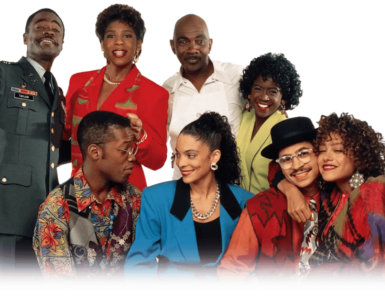Donald Glover and Janine Naber’s “Swarm” came out on Amazon on March 17, 2023. This show followed protagonist Dre, played by Dominique Fishback, in her obsession with musical artist Ni’jah and how she felt the need to “protect” Ni’Jah and her name at all costs.
“Swarm” makes it clear that Ni’jah represents Beyoncé through many references and similarities. While Beyoncé’s fans are called the BeyHive in real life, Ni’Jah’s fans on “Swarm” are known as the Killer Bees. Not only that, but protagonist Dre mentions in passing that she keeps mementos of a group called Glamor’s Child. Many Beyoncé fans saw this as a direct reference to Destiny’s Child.
Beyoncé is not the only real-life person or event that the plot of “Swarm” references. An image at the beginning of every “Swarm” episode reads, “This is not a work of fiction. Any similarity to actual persons, living or dead, or actual events, is intentional.”
According to Variety, co-creator Nabers said, “Every episode, with the exception of Episode 4, has a true foundation for its murder.”
Chloe Bailey, mentored by Beyoncé in real life, plays Dre’s best friend, Marissa, and dies at the end of the first episode. After her passing, viewers witness Dre’s first kill: Marissa’s boyfriend. From that point on, the show follows Dre on a serial killing spree, where she targets those who speak poorly of Ni’jah online. It is revealed in Episode Four, “Running Scared,” through Dre’s therapy session with Eva, played by Billie Eilish, that Dre had been hurting people from a young age. However, like many of Donald Glover’s works, the show does not give details and leaves it up to the viewer’s interpretation.
In “Swarm”, Marissa committed suicide after her boyfriend cheated on her. Her death occurred after the revelation that Ni’jah was getting cheated on. Marissa’s name may not have been a coincidence. An internet rumor sparked in 2016 that Beyoncé fan Marissa Jackson committed suicide after finding out the superstar’s husband was cheating on her.
The similarities don’t stop there. Eva was a member of a cult in “Swarm” which was inspired by real-life events. According to Nabers, the cult in “Swarm” was influenced by a cult of Hollywood stars called NXIVM, founded by Keith Raniere.
While Dre lives on as a serial killer, she emulates various lifestyles and personalities. In an episode where she is an adult dancer, her car breaks down while on the road with her co-workers. The man who pulls over to help them ends up being someone who spoke poorly of Ni’Jah on Twitter, and Dre tries to murder him. When she is unsuccessful, her co-workers find her physically struggling with him and kill him after assuming he is the perpetrator. This instance compares to a real-life event where four dancers had car trouble and allegedly murdered the man who stopped to help them.
Arguably, the most obvious connection made to the BeyHiveis in the episode where Dre bites Ni’jah. This scene ties back to 2018 when someone allegedly bit Beyoncé at an event. While the internet has many theories about who did this and why, Tiffany Haddish made public claims that Sanaa Lathan bit Beyoncé.
Lathan stars as Monica in Love and Basketball, who Dre is mistaken for by a man she runs past after biting Ni’Jah. “You know who that was,” he said, “The chick from Love and Basketball.”
The ties of “Swarm” to real-life events have some fans and viewers wondering what messages the creators may have been trying to convey to the public. The idealization of public figures is a trend that some people believe has our society in a chokehold.
“I feel like the obsession of celebrities has increased because of social media,” Taylor Murphy said, “I also feel like people are not celebrities anymore because celebrities at one point were untouched and now that it’s so easy to be in contact with them, the obsession has become real. In the sense of Beyoncé, the obsession is always real because of how exclusive she is[…] It’s just like this fear and reverence that people have for Beyoncé and how someone can really die behind Beyoncé.”
“I think “Swarm” is like a social commentary on the obsession with celebrities and the dangers of obsession with celebrities, and how people can take that to the extreme,” Howard student Ashley Watson said, “And it’s interesting because he [Donald Glover] had so many big names in it. It’s a commentary on celebrities but you have all these celebrities.”










Recent Comments